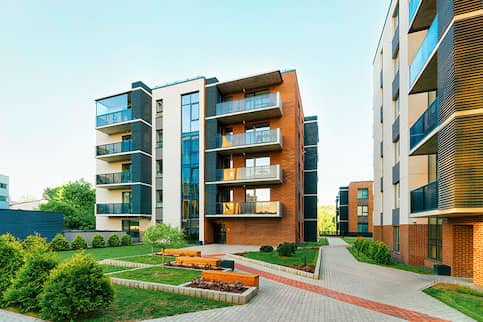The Ultimate Contrast: HOA Condo vs. Typical Home
The Ultimate Contrast: HOA Condo vs. Typical Home
Blog Article
The Role of an HOA in Developing and Enforcing Community Guidelines for Homeowners
The role of a Homeowners Organization (HOA) in establishing and imposing neighborhood standards is fundamental to preserving a cohesive and orderly domestic atmosphere - hoa condo. By creating clear guidelines that regulate facets such as home maintenance and area conduct, the HOA not only sets requirements for homeowners but also promotes a feeling of belonging and liability. However, the implementation of these guidelines can provide different obstacles, questioning about area, justness, and interaction involvement. As we explore these complexities, it becomes evident that the influence of an HOA extends much past simple guideline enforcement.
Recognizing House Owners Associations
Homeowners organizations (HOAs) work as controling bodies for property communities, playing an essential duty in preserving residential or commercial property worths and promoting a feeling of neighborhood. Typically developed by developers, HOAs are composed of homeowners within an assigned location who choose a board to oversee the organization's tasks. The main features of an HOA include implementing community policies, taking care of typical locations, and organizing community occasions.
HOAs run under a set of regulating documents, including restrictions, agreements, and problems (CC&R s), which describe the legal rights and duties of house owners. These regulations aim to make sure that residential or commercial properties are preserved to a particular criterion, thereby safeguarding the aesthetic charm and general worth of the area. In addition, HOAs often collect dues from property owners to fund maintenance, landscaping, and other social work.
The existence of an HOA can substantially affect the living experience within a community (hoa condo). While some citizens value the organized atmosphere and features supplied, others may discover certain policies restrictive. Balancing the interests of all homeowners is essential for an HOA to operate properly, ensuring that it offers its designated function of improving community living while respecting specific house owner legal rights
Developing Community Standards

To start, an HOA needs to perform studies or hold conferences that enable citizens to voice their worries and tips. This participatory procedure promotes a sense of possession and raises conformity. Next, the HOA board should analyze the feedback to recognize typical styles and priorities that warrant official addition in the guidelines.
It is also necessary to ensure that the standards are clear, concise, and easily recognized. Uncertainties can result in misunderstandings and problems, threatening the function of the guidelines. The guidelines must be extensive, covering numerous elements of area living, including property maintenance, sound levels, and usage of common locations.
Enforcement of Guidelines
Reliable enforcement of community policies is essential for keeping order and guaranteeing that all homeowners adhere to the developed standards. An HOA should apply a structured technique to apply these policies, which usually includes a mix of monitoring, communication, and fines for non-compliance.
First, regular assessments and area patrols can help determine offenses, making certain that guidelines are constantly used across the neighborhood. This positive surveillance allows the HOA to deal with problems prior to they rise, fostering a sense of responsibility amongst homeowners.
2nd, clear communication is important. Citizens must be notified of the guidelines and the procedures for reporting offenses. An open line of interaction motivates citizens to voice issues and look for explanation on guidelines, which can boost conformity.

Finally, when violations occur, the HOA should impose repercussions as described in the controling documents. By successfully imposing regulations, an HOA can grow a my site harmonious living setting that mirrors the cumulative values of its homeowners.
Advantages of HOA Regulations
Numerous advantages occur from the implementation of HOA guidelines, which serve to enhance the top quality of life within a neighborhood. One key advantage is the upkeep of residential property values. By imposing criteria for aesthetic appeals and maintenance, HOAs guarantee that homes and typical areas stay attractive, cultivating a desirable living setting that can result in boosted property worths over time.
Furthermore, HOA laws promote consistency and uniformity within the community. This coherence in design and upkeep helps to develop a sense of belonging amongst citizens, contributing to area pride and a positive environment. Established standards promote problem resolution amongst next-door neighbors by giving clear expectations and procedures for habits, consequently decreasing conflicts.
An additional considerable advantage is the arrangement of shared facilities and solutions. Lots of HOAs take care of community centers such as pools, parks, and clubhouses, which boost leisure opportunities for residents. These facilities not only enhance the quality of life yet also encourage social interaction.
Inevitably, the laws stated by an HOA cultivate a well-organized, unified community, making certain that homeowners delight in a high standard of living while cultivating an encouraging setting for all home owners.
Typical Obstacles Dealt With by HOAs
In advice the middle of the advantages that house owners organizations (HOAs) can give, they additionally encounter a selection of obstacles that can prevent their performance. One substantial issue is the lack of resident interaction. Several house owners may not take part in conferences or community tasks, causing a detach in between the HOA board and locals. This disengagement can cause misconceptions concerning area standards and an absence of assistance for enforcement efforts.
Disagreements can occur when citizens really feel that enforcement is inconsistent or prejudiced, potentially leading to conflicts within the neighborhood. Additionally, HOAs typically encounter monetary restraints, which can restrict their capability to preserve common Your Domain Name locations or fund neighborhood tasks.
Furthermore, browsing legal complexities can be intimidating for HOAs. Developing and transforming demographics community needs require HOAs to adjust their guidelines, usually fulfilling resistance from long-standing locals who are accustomed to typical norms.
Verdict

By creating clear guidelines that control aspects such as building maintenance and neighborhood conduct, the HOA not only establishes criteria for citizens yet additionally promotes a feeling of belonging and liability.Homeowners organizations (HOAs) serve as controling bodies for household areas, playing a crucial role in keeping residential or commercial property worths and cultivating a feeling of neighborhood. Several property owners might not take part in conferences or neighborhood activities, leading to a detach in between the HOA board and residents. Altering demographics and advancing area needs need HOAs to adjust their guidelines, commonly satisfying resistance from long-standing residents that are accustomed to typical norms. Through the advancement of clear guidelines and regular enforcement, HOAs advertise residential property upkeep, neighborhood satisfaction, and trust amongst locals.
Report this page